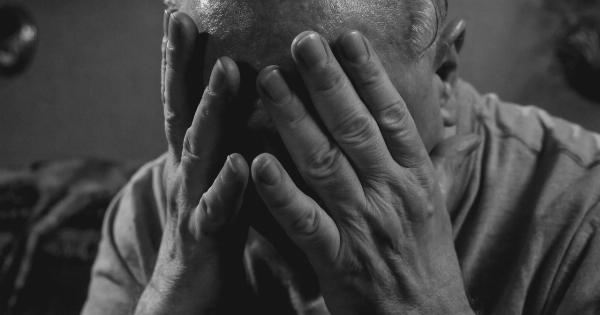Depression is a serious mental health condition that affects millions of individuals worldwide. According to the World Health Organization, depression is the leading cause of disability globally, affecting approximately 264 million people.
Depression can impact various aspects of one’s life, including relationships and sexual intimacy.
Depression and Relationships
Depression affects an individual’s mood, thoughts, and behavior, making it challenging to connect with others. Relationships require emotional and physical energy, and individuals with depression may lack both.
They may appear disinterested in their partner, and their lack of energy may make them withdraw from social situations. Depression can also lead to negative thoughts and low self-esteem, making the individual feel unworthy of love and affection, which can harm their relationship and, ultimately, lead to its end.
Depression can damage attachment and emotional bonds between partners, making them more vulnerable to conflicts and disconnection.
Partners may feel helpless, frustrated, and resentful if they are not aware of their loved one’s struggles or if they do not know how to support them. This can create a cycle of negative feelings, resulting in further isolation and loneliness.
Depression and Sexual Intimacy
Depression can impact sexual intimacy in several ways. Individuals with depression may experience low libido, making it difficult to engage in sexual activity or feel pleasure.
They may also experience difficulties with arousal and maintain an erection or reach an orgasm. Depression can also affect the body image and self-esteem, making an individual feel unattractive and insecure about their body, which can lead to avoidance of sexual intimacy.
Depression also reduces the production of serotonin and dopamine, neurotransmitters that regulate mood, emotions, and pleasure. This can lead to reduced feelings of pleasure during sexual activity, leading to further avoidance of sexual intimacy.
Depressed individuals may feel ashamed or embarrassed to talk about their sexual difficulties, which can further harm the relationship and reduce sexual satisfaction.
Treating Depression & Improving Relationships and Sexual Intimacy
Depression is a treatable condition, and individuals who seek mental health treatment can improve their symptoms and quality of life, including relationships and sexual intimacy.
Effective treatment for depression includes a combination of psychotherapy and medication. Psychotherapy teaches individuals coping skills, communication skills, and problem-solving strategies that can improve relationships. It can also address negative thoughts and beliefs that affect one’s self-esteem and mood.
Medications such as antidepressants can also improve symptoms of depression, including low mood, energy, and feelings of pleasure.
However, medication should be taken under the guidance of a qualified mental health professional, as some can have side effects that affect sexual function.
Couples therapy can also improve relationships by teaching partners communication skills and conflict resolution strategies.
Individual and couples therapy can also help individuals accept and appreciate their bodies, reducing negative thoughts and self-esteem issues that affect sexual intimacy.
Final Thoughts
Depression can harm relationships and sexual intimacy, creating a negative cycle of isolation, disconnection, and low mood.
However, effective treatment, including psychotherapy, medication, and couples therapy, can improve symptoms of depression, increase communication and problem-solving skills, and improve relationships and sexual intimacy.






























